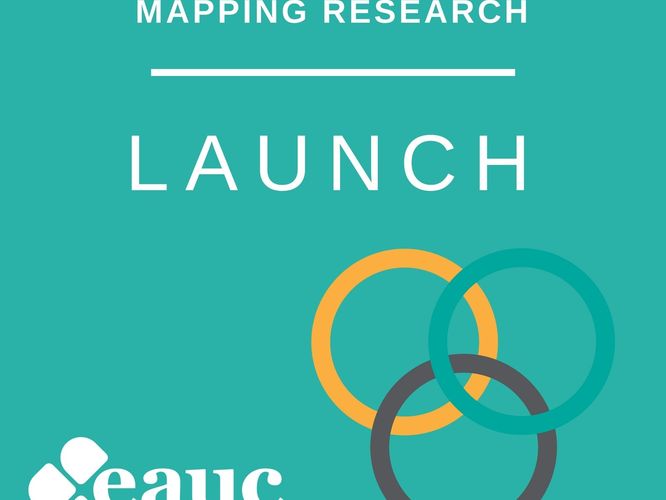The EAUC has released new mapping research today that looks at the wide rangi...
The EAUC has released new mapping research today that looks at the wide ranging sustainability reporting tools available to UK post-16 education sector.
Navigating through the increasingly complex landscape of sustainability reporting tools often seems a daunting task. In response, the Environmental Association for Universities and Colleges (EAUC) has initiated this project to help sustainability professionals critically evaluate those tools and facilitate their institutions’ orientation in sustainability assessment and reporting. The mapping also helps providers see which areas of sustainability their tools cater for and if there are any areas within their tool that could receive more attention.
With sustainability quickly heading up the objectives list as post-16 education institutions realise its business value, these tools need to work together to create a cohesive and holisitic approach to sustainable development.
Iain Patton, CEO of the Environmental Association for Universities and Colleges (EAUC), said:
The project has achieved three main results:
- Tools most commonly used by the UK FHE sector have been identified and are presented in the form of a guide providing an overview of each.
- These diverse tools have been ‘mapped’ under a whole institution approach framework, as modelled by LiFE (a self-assessment and reporting mechanism developed by the EAUC).
- A ‘Dashboard’ has been developed to compile all the tools and systematize their comparison and analysis. The dashboard tools also include an allocated score on the basis of its coverage of the whole institution sustainability, as defined by LiFE. The Dashboard provides a mechanism for creating customised ‘baseline’ maps which will include all an institution’s tools to identify gaps and further drive performance.
Iain Patton, added:
After receiving early positive feedback, a second phase is being considered for this research with more tools to be mapped at different levels and more institutional maps to be created. In parallel to this research, the EAUC has commissioned ARUP to develop the accreditation process for LiFE, as an option for institutions aspiring for external recognition. In this context, a future LiFE which potentially combines external tools with in-house activities could be published by institutions as an externally accredited image of all their achievements.
Consideration is also being given to how this mapping research and the LiFE framework could help to widen the sustainability scope of the AUDE Green Scorecard. A list of gaps in LiFE has been developed as part of the mapping process. In time and in consultation with EAUC members LiFE will be updated and improved.
Navigating through the increasingly complex landscape of sustainability reporting tools often seems a daunting task. In response, the Environmental Association for Universities and Colleges (EAUC) has initiated this project to help sustainability professionals critically evaluate those tools and facilitate their institutions’ orientation in sustainability assessment and reporting. The mapping also helps providers see which areas of sustainability their tools cater for and if there are any areas within their tool that could receive more attention.
With sustainability quickly heading up the objectives list as post-16 education institutions realise its business value, these tools need to work together to create a cohesive and holisitic approach to sustainable development.
Iain Patton, CEO of the Environmental Association for Universities and Colleges (EAUC), said:
“Universities and colleges are in a unique position to influence the next generation of forward-thinking leaders, and their role in transforming and embedding sustainability is not to be underestimated. They are creating the ‘new normal’ and that normal is conscious of tomorrow’s world and active in its efforts to create the future we want.”
The project has achieved three main results:
- Tools most commonly used by the UK FHE sector have been identified and are presented in the form of a guide providing an overview of each.
- These diverse tools have been ‘mapped’ under a whole institution approach framework, as modelled by LiFE (a self-assessment and reporting mechanism developed by the EAUC).
- A ‘Dashboard’ has been developed to compile all the tools and systematize their comparison and analysis. The dashboard tools also include an allocated score on the basis of its coverage of the whole institution sustainability, as defined by LiFE. The Dashboard provides a mechanism for creating customised ‘baseline’ maps which will include all an institution’s tools to identify gaps and further drive performance.
Iain Patton, added:
“It is up to sustainability leaders with a whole institutional vision to choose tools that move beyond estates in which many of them already excel, addressing amongst others, the educational aspects of Further and Higher Education institutions.
“if we can build one single simple picture of a university or college's sustainability performance, this should profoundly help it communicating and getting credit for its achievements, build wider stakeholder support, help to identify and address performance gaps and build more cross organisation motivation and momentum to do even better.”
After receiving early positive feedback, a second phase is being considered for this research with more tools to be mapped at different levels and more institutional maps to be created. In parallel to this research, the EAUC has commissioned ARUP to develop the accreditation process for LiFE, as an option for institutions aspiring for external recognition. In this context, a future LiFE which potentially combines external tools with in-house activities could be published by institutions as an externally accredited image of all their achievements.
Consideration is also being given to how this mapping research and the LiFE framework could help to widen the sustainability scope of the AUDE Green Scorecard. A list of gaps in LiFE has been developed as part of the mapping process. In time and in consultation with EAUC members LiFE will be updated and improved.











